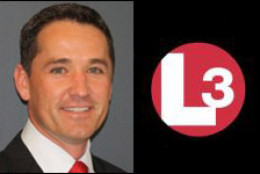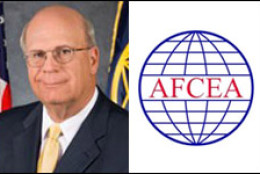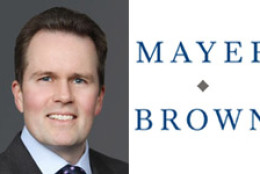Contracts/Awards
-
The Defense Department issues far more sole source contracts than any other agency. Full and open competition is supposed to be the holy grail of awarding Federal contracts. Figuring out when sole source contracts are OK and when they're not is drawing attention from Congress. Belva Martin, director of Acquisition and Sourcing Management Issues at the Government Accountability Office, tells In Depth with Francis Rose about a new report that says little competition isn't always a good thing.
April 21, 2014 -
Computer Sciences Corporation agreed topay $1.1 million to resolve the allegations that the company submitted to false resumes to qualify for higher paying positions.
April 17, 2014 -
In a budget environment in which cost overruns are very likely to lead to canceled programs, the Air Force says it's pressing it prime vendors to remove any costs they possibly can from their subcontracted supplier base.
April 17, 2014 -
David Ramirez, general manager of the Federal Solutions business unit at the L-3 National Security Solutions group, will discuss innovation and what agencies are looking for in terms of services and technologies. April 15, 2014
April 15, 2014 -
Defense Department contracting officials are under orders now to double check prices on the General Services Administration's Federal Supply Schedule. DoD says the GSA Schedule doesn't always have the best price possible. Guy Timberlake, chief visionary and chief executive officer at the American Small Business Coalition, writes about it in this week's Gov-Con newsletter. He tells In Depth with Francis Rose "one size fits all" may not apply to your agency's contracting policy.
April 14, 2014 -
The Obama administration says discrimination is partly to blame for a pay gap between men and women. But Congressional Republicans are skeptical. They have balked at a bill to address pay inequality. In the meantime, President Barack Obama has signed an executive order for federal contractors. They will have to report to the Labor Department detailed salary information broken down by race and gender. They also won't be able to retaliate against employees who discuss salary. Trey Hodgkins, senior vice president for the public sector at the Information Technology Industry Council, told Federal Drive hosts Tom Temin and Emily Kopp how contractors are reacting to the executive order. Read Federal News Radio's related article.
April 14, 2014 -
"Efficiency and Effectiveness" — we hear that phrase all the time in government. At the Defense Department, it's taking on a new meaning. DoD can no longer spend more of its time worrying about the effectiveness of its acquisition programs at the expense of efficiency. Federal News Radio Executive Editor Jason Miller explained to Federal Drive hosts Tom Temin and Emily Kopp how DoD is addressing its long muted focus on efficient buying. Read Federal News Radio's related article.
April 11, 2014 -
A group of functional domain experts are reaching out to the military services and agencies to look at service contracting spending across 12 areas. The Defense Department's goal is to use strategic sourcing to improve how it buys in these categories. The Army created a governance board to bring together all stakeholders during specific points of the acquisition process to find opportunities to collaborate.
April 11, 2014 -
Kent Schneider, president and CEO of AFCEA, joins host Mark Amtower to talk about the organization, and its activities in the government market. April 14, 2014
April 10, 2014 -
Jerry Williams, the CIO of FSA, said he's reorganizing his office to establish customer service representatives to help the mission areas use IT more successfully. April 10, 2014
April 10, 2014 -
David Dowd, partner at Mayer Brown LLP, will give us his thoughts on the Mandatory Disclosure Rule, and other legal issues. April 8, 2014
April 08, 2014 -
GSA issued a RFQ that asks developers to restart the renovation of its stalled headquarters program and further DHS headquarters construction. The contractors wouldn't receive payment, but instead two buildings in Southwest Washington, D.C.
April 08, 2014 -
Stan Krejci of the SK Group discusses whether your company needs a board of advisers, and if so, how you should assemble one. April 7, 2014
April 07, 2014 -
SBA said GSA's impact analysis failed on two main accounts. SBA said it disagreed on GSA's claim that OS3 is a follow-on contract to OS2 and therefore is not a consolidation of contract requirements subject to the provisions of the Small Business Act. SBA also said GSA's argument that it is "contrary to law" to provide an economic analysis on the consequences of small business on a consolidated contract is wrong.
April 07, 2014 -
After dealing with a bid protest, meeting the timeline will require the Navy and its prime vendor to move quickly. The new schedule accelerates the original transition schedule by several months.
April 07, 2014










